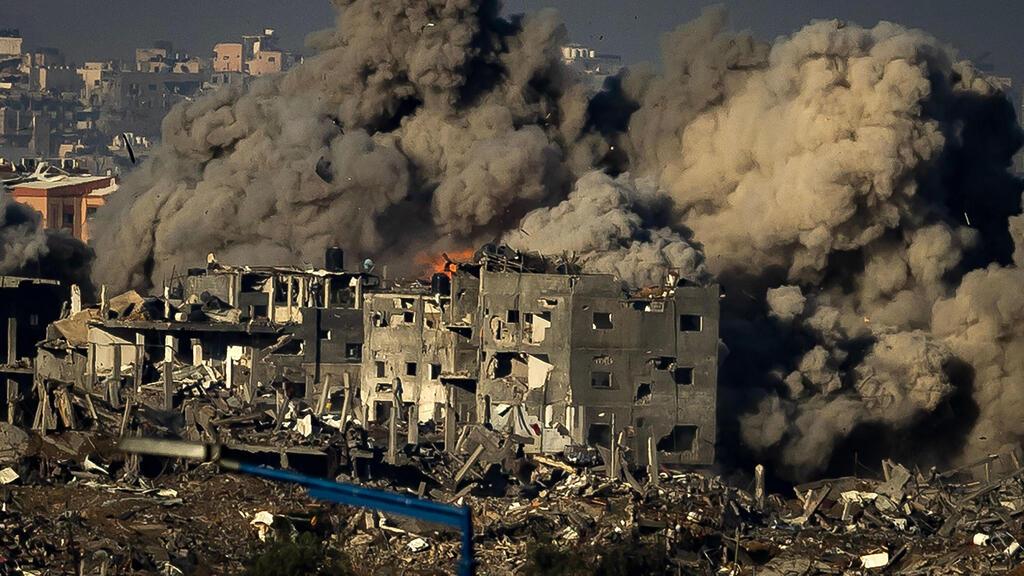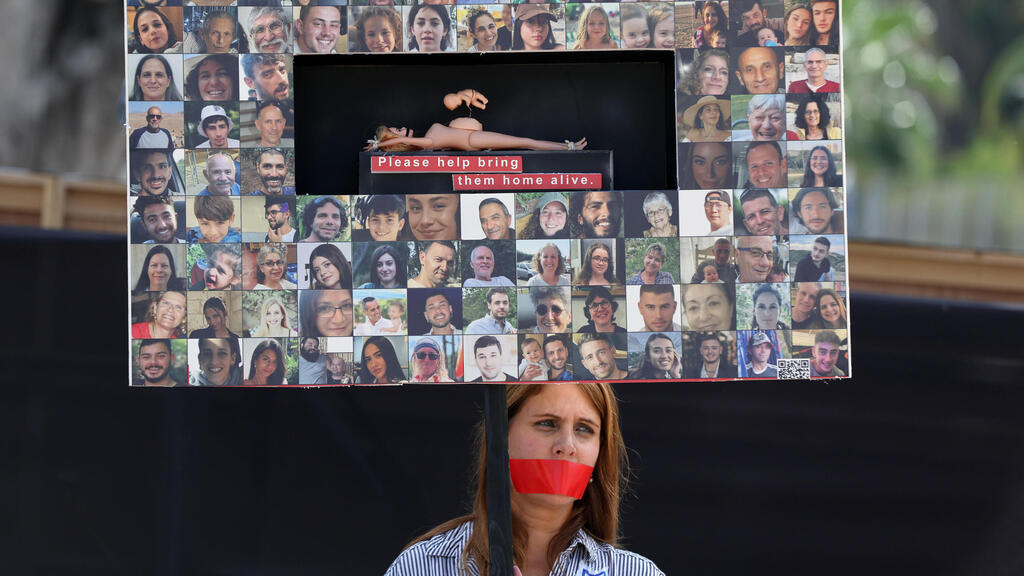Israel's security cabinet gathered to discuss its position on a deal being negotiated for the release of Israeli hostages held in Gaza. It is unclear how many hostages would be returned but in exchange, Israel will release Palestinian prisoners convicted of terrorism and agree to a ceasefire.
Read more:
Security officials fear that the deal could signal the end of the fighting against Hamas amid international pressure and are also concerned for the safety of troops, based on the experiences of the 2014 round of fighting when Hamas used a ceasefire to abduct soldiers.
But beyond the military aspects, the military will be tested in its ability to present an independent, professional position after its failures on October 7. Shin Bet chief Ronen Bar, who was in Egypt to advance the hostage deal, Chief of Staff Herzi Halevi and military intelligence chief Aharon Haliva must express their positions but will do so with the weight of the 1,400 victims of the Hamas massacre and the hundreds of hostages, on their shoulders.
The reported deal is not expected to include all of the hostages. Would a military chief that did not bare responsibility for the results of the Hamas attack, agree to such a proposal? Halevi who is conducting a well-executed war must express the shortcomings of a partial deal, with the sensitivity required as families of hostages await some news of their loved ones, and amid his understanding that Hamas is well aware of what strategic assets it possesses in order to survive.
Prime Minister Benjamin Netanyahu and Defense Minister Yoav Gallant are also marred by the failures of the Hamas attack. Gallant who heads the defense establishment was briefed of the warning signs hours before the attack and Netanyahu who may or may not have been warned had ignored the strategic warnings presented to him in the past year.
Their responsibility may also weigh heavily when they are forced to decide whether to accept or reject Hamas demands and the public reaction to their ultimate decision. Both know their political future may be determined buy what they decide. The return of some of the hostages, may provide some solace to Israelis for a short while but the families of those who will be left behind are sure to speak out.
 Yossi Yehushua
Yossi YehushuaI believe it would be wrong to accept a partial release and think the military pressure should continue. But Netanyahu and Gallant may not be able to face the public pressure if they take such a stand.
IDF accomplishments in the fighting in Gaza revealed, IDF include control over the crowded Shati refugee camp, that was home to 50,000 people and forces are nearing control of the Shifa hospital and the Hamas assets there.
That momentum must not be curtailed and Israel's interest must be the destruction of Hamas and the return of all the hostages.
But beyond the military aspects, the military will be tested in its ability to present an independent, professional position after its failures on October 7. Shin Bet chief Ronen Bar, who was in Egypt to advance the hostage deal, Chief of Staff Herzi Halevi and military intelligence chief Aharon Haliva must express their positions but will do so with the weight of the 1,400 victims of the Hamas massacre and the hundreds of hostages, on their shoulders.
The reported deal is not expected to include all of the hostages. Would a military chief that did not bare responsibility for the results of the Hamas attack, agree to such a proposal? Halevi who is conducting a well-executed war must express the shortcomings of a partial deal, with the sensitivity required as families of hostages await some news of their loved ones, and amid his understanding that Hamas is well aware of what strategic assets it possesses in order to survive.
Prime Minister Benjamin Netanyahu and Defense Minister Yoav Gallant are also marred by the failures of the Hamas attack. Gallant who heads the defense establishment was briefed of the warning signs hours before the attack and Netanyahu who may or may not have been warned had ignored the strategic warnings presented to him in the past year.
Their responsibility may also weigh heavily when they are forced to decide whether to accept or reject Hamas demands and the public reaction to their ultimate decision. Both know their political future may be determined buy what they decide. The return of some of the hostages, may provide some solace to Israelis for a short while but the families of those who will be left behind are sure to speak out.
I believe it would be wrong to accept a partial release and think the military pressure should continue. But Netanyahu and Gallant may not be able to face the public pressure if they take such a stand.
IDF accomplishments in the fighting in Gaza revealed, IDF include control over the crowded Shati refugee camp, that was home to 50,000 people and forces are nearing control of the Shifa hospital and the Hamas assets there.
That momentum must not be curtailed and Israel's interest must be the destruction of Hamas and the return of all the hostages.




